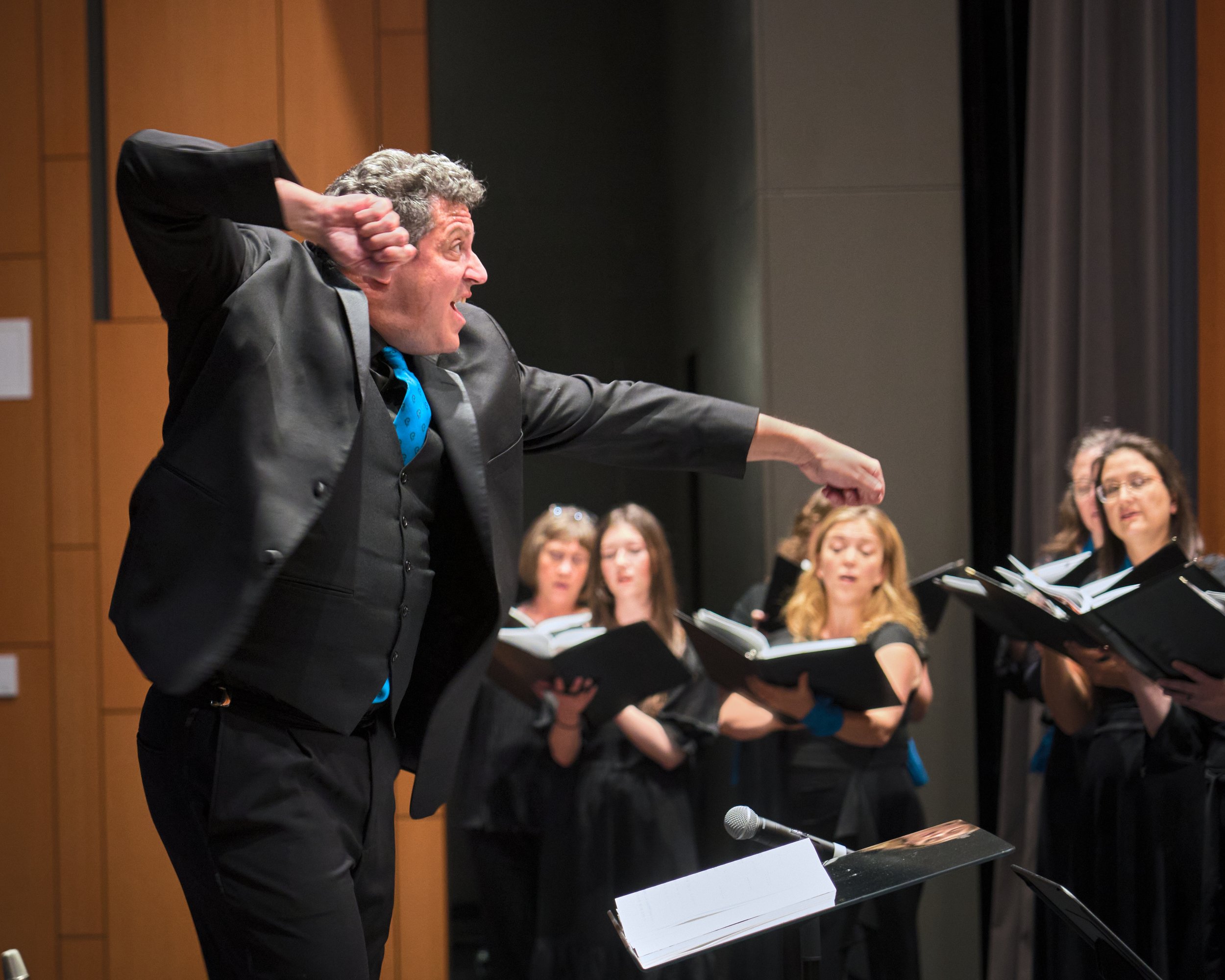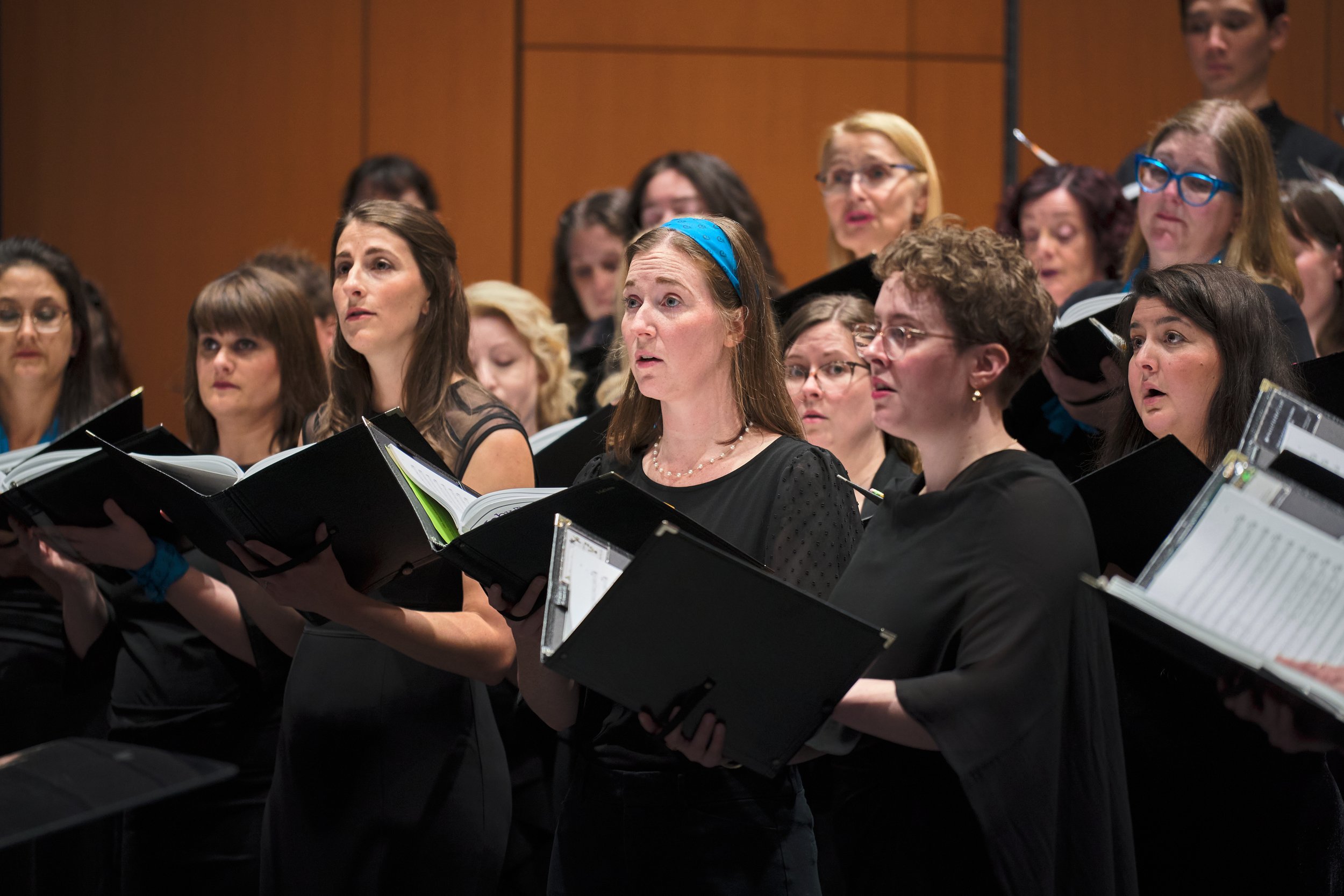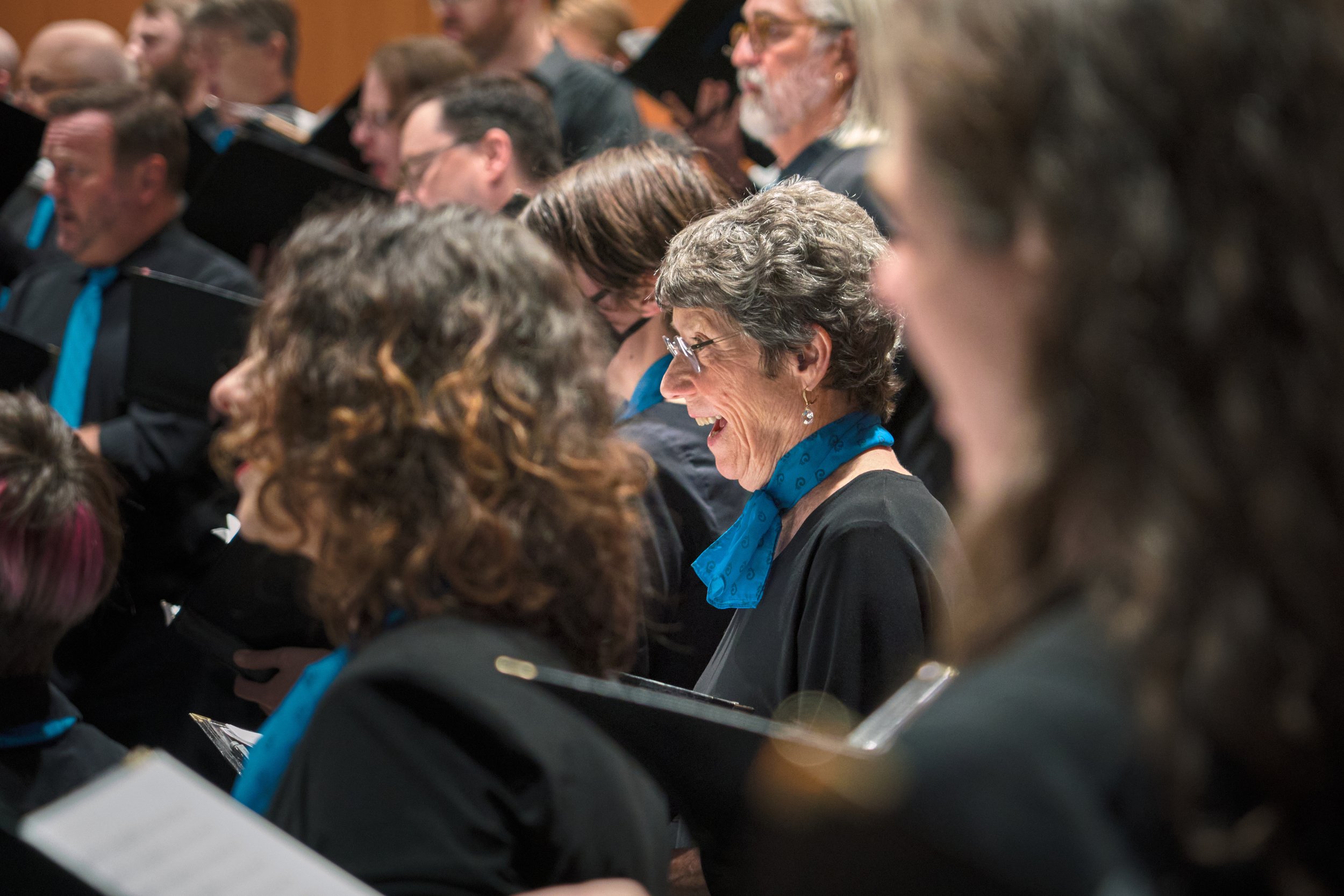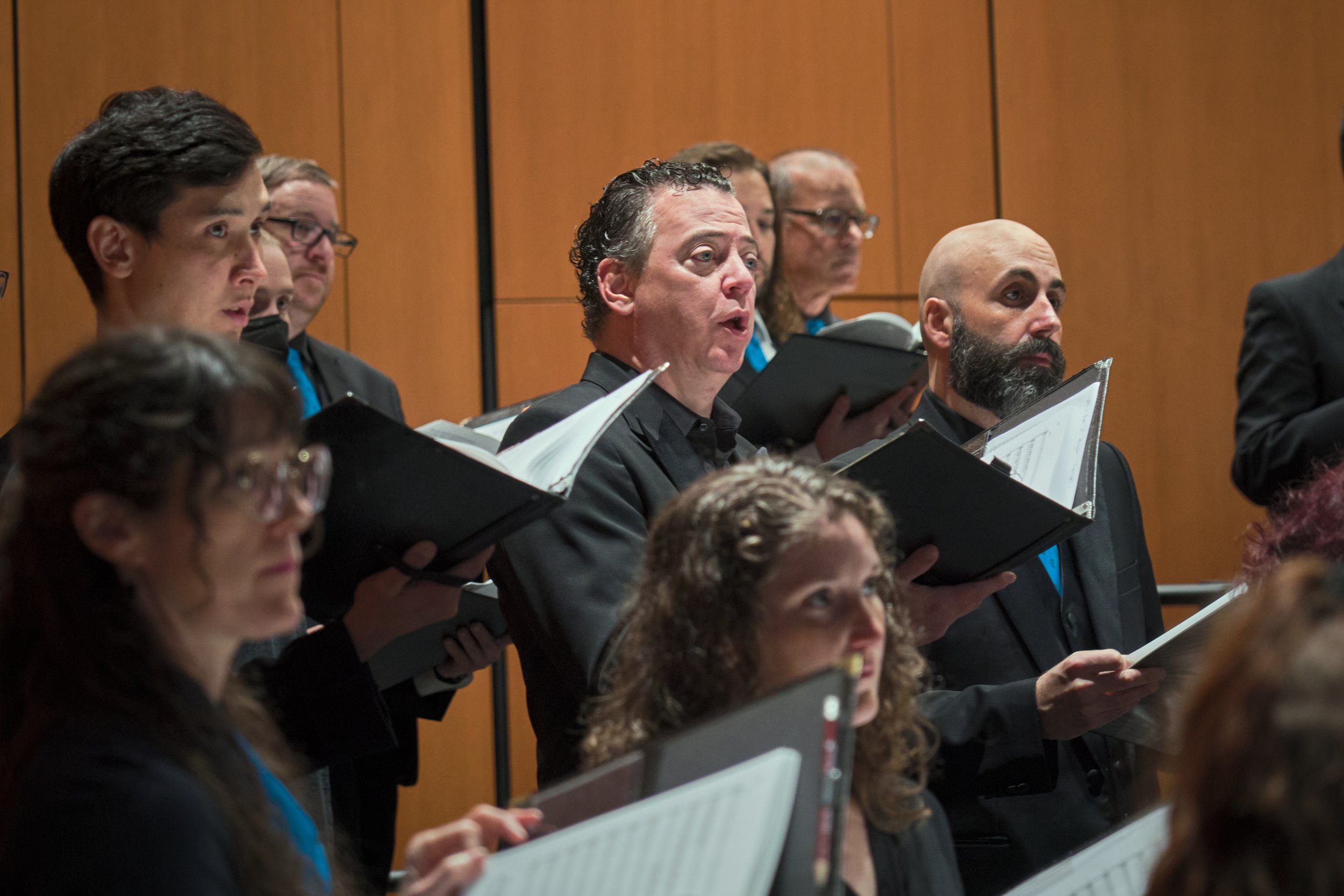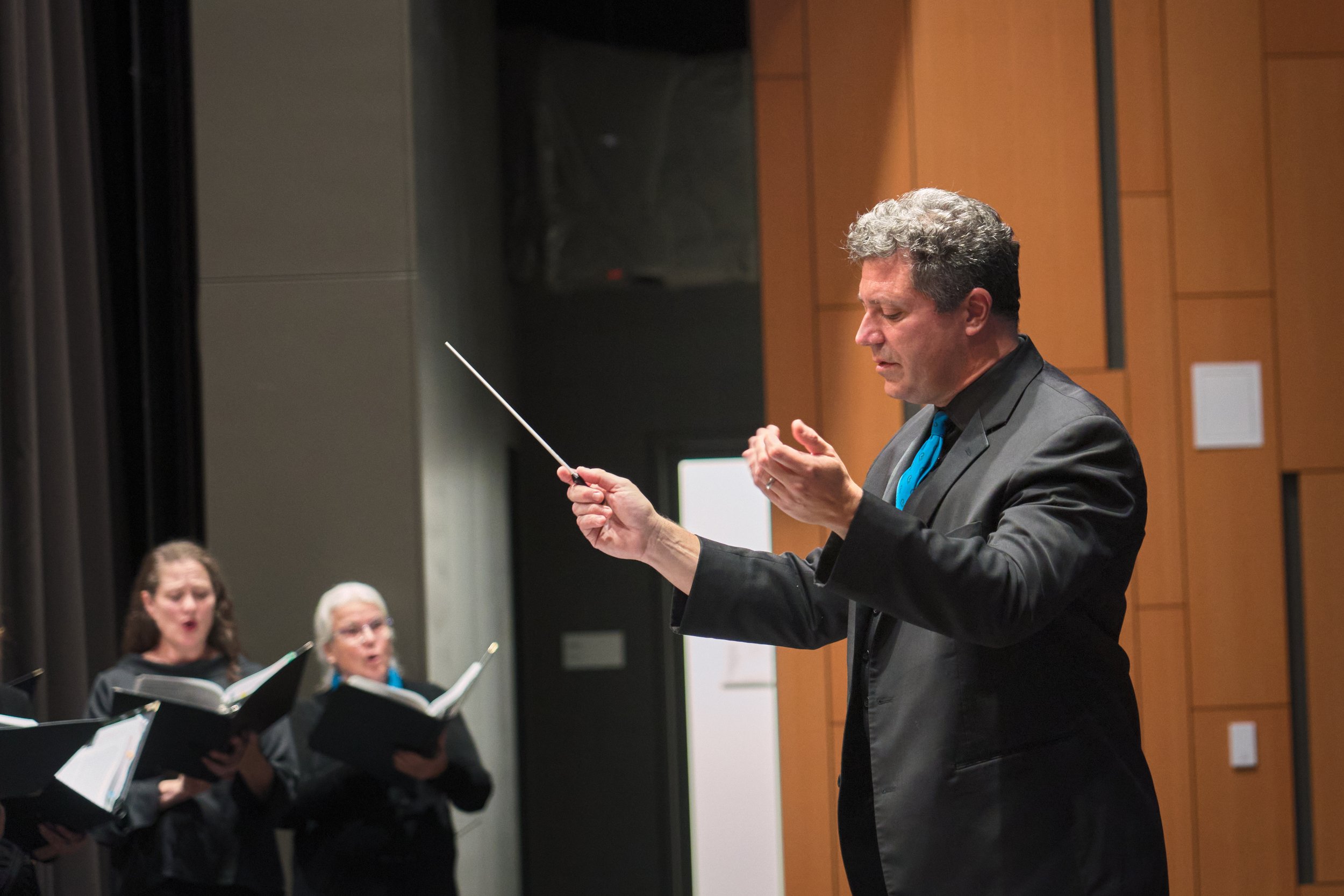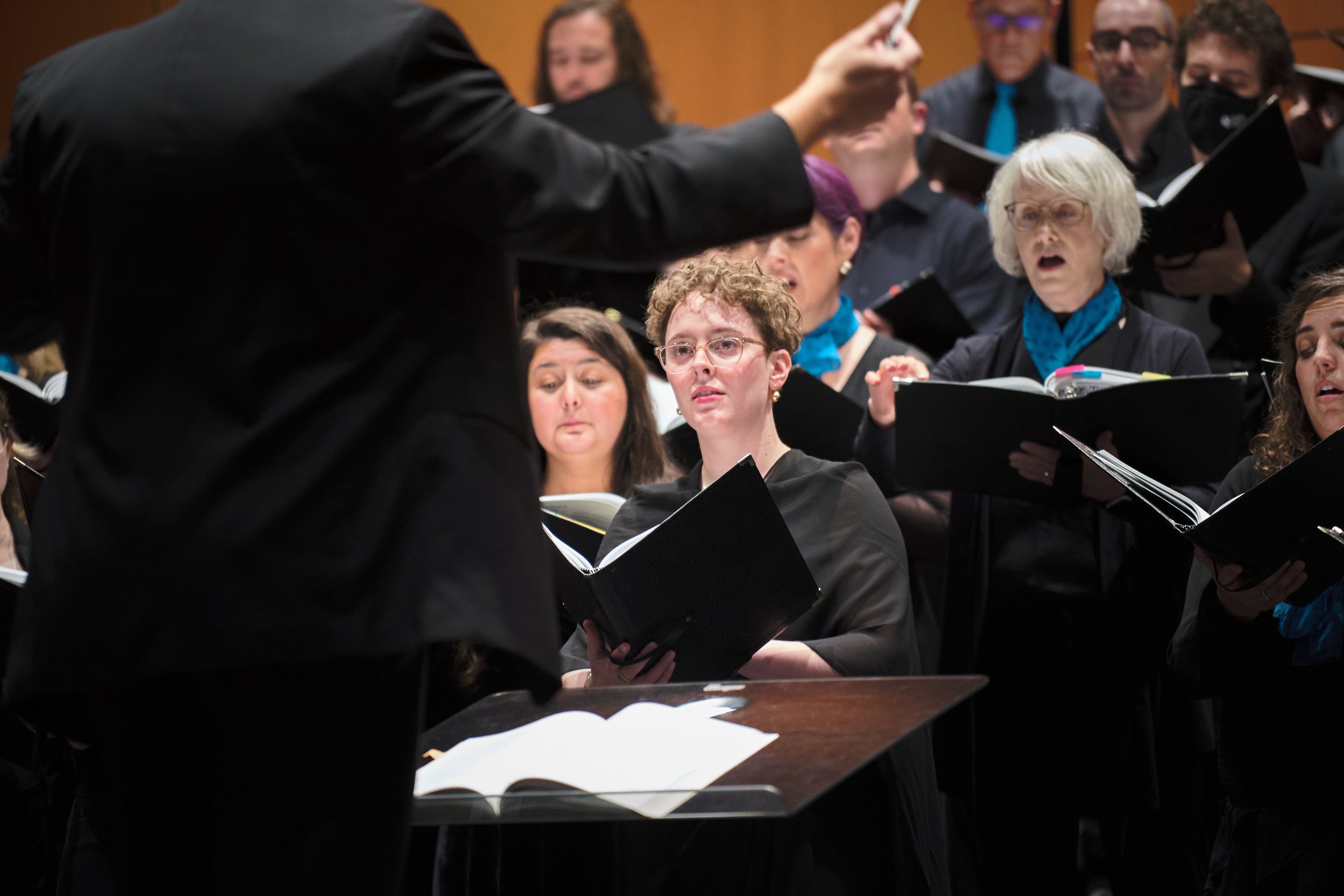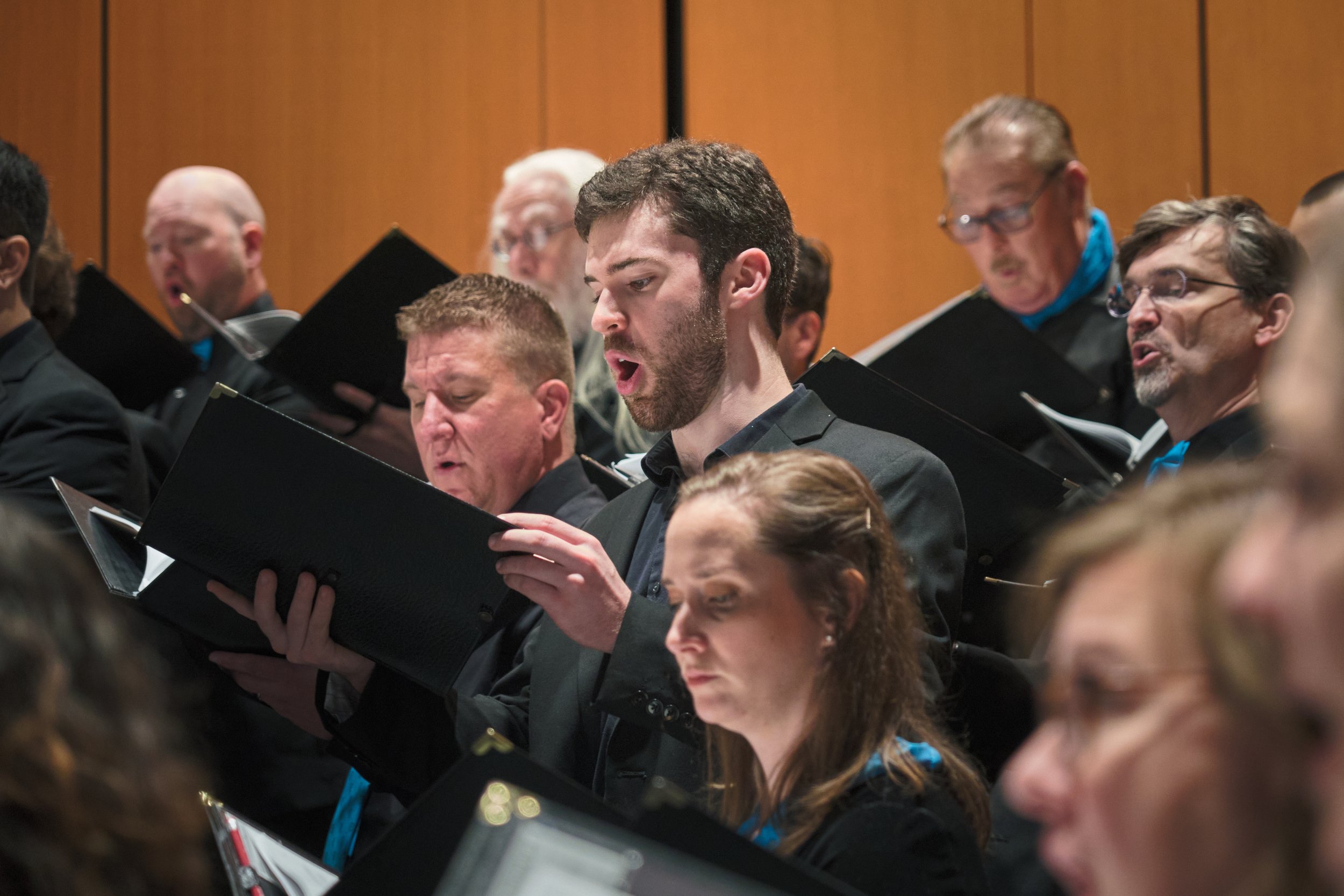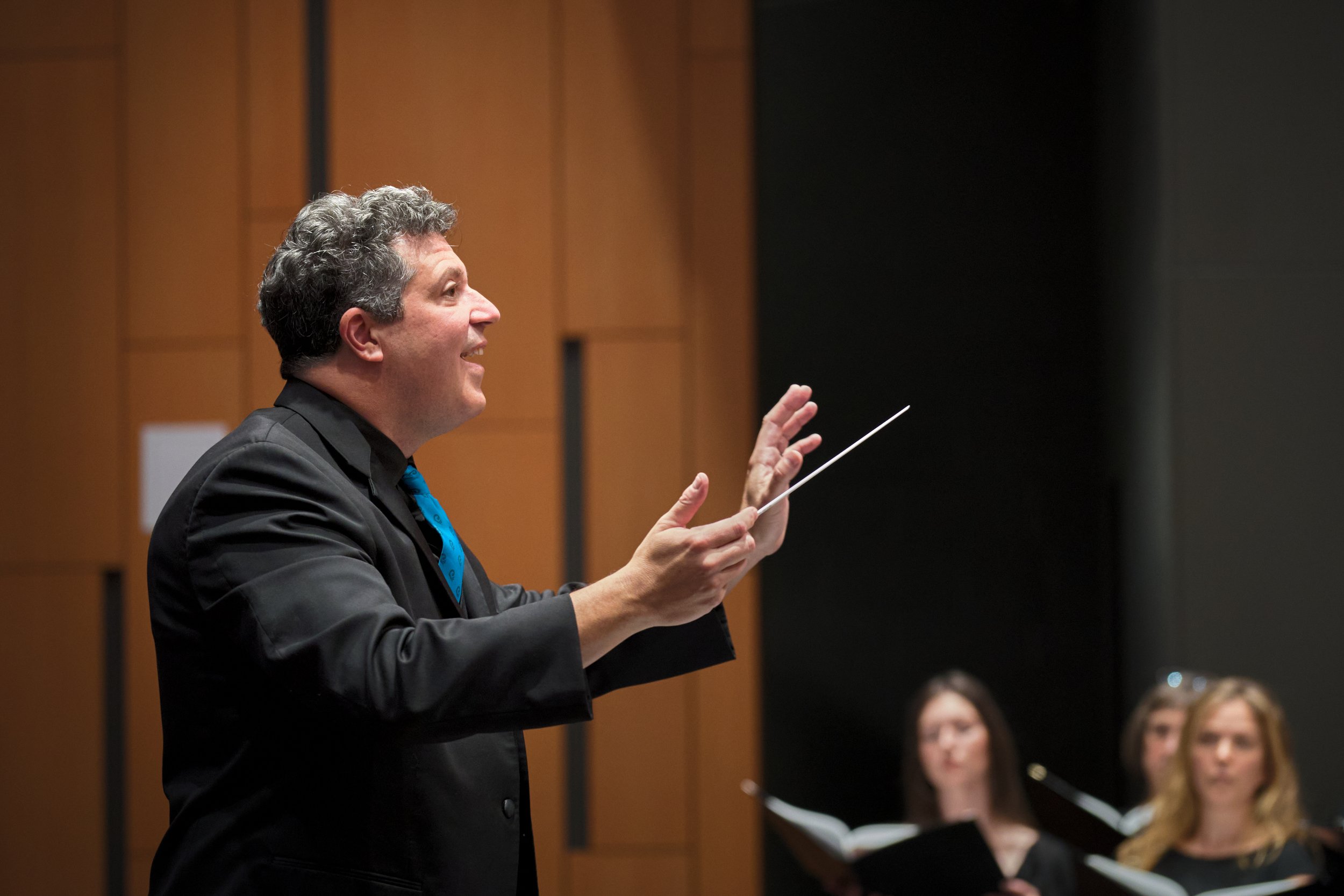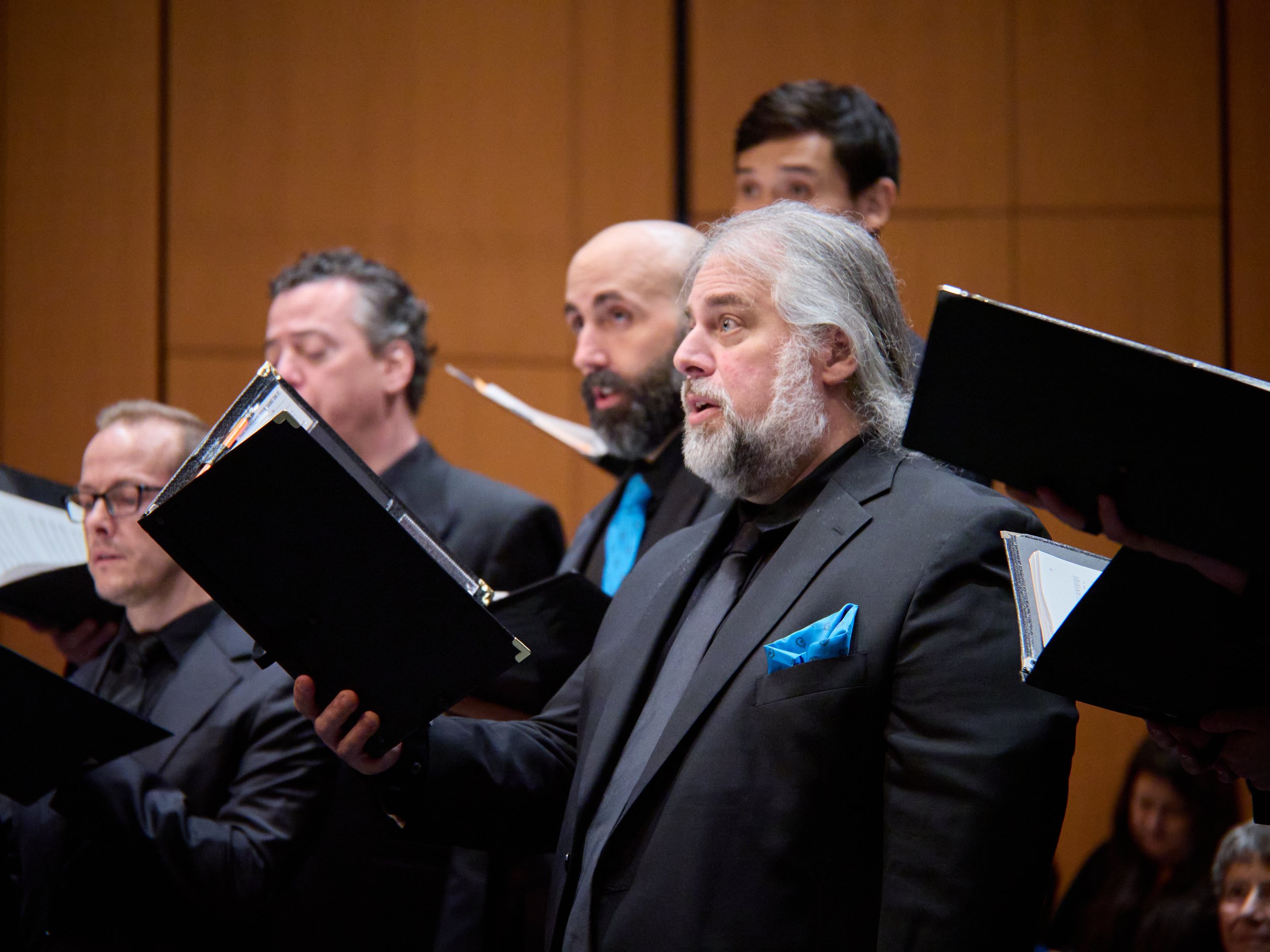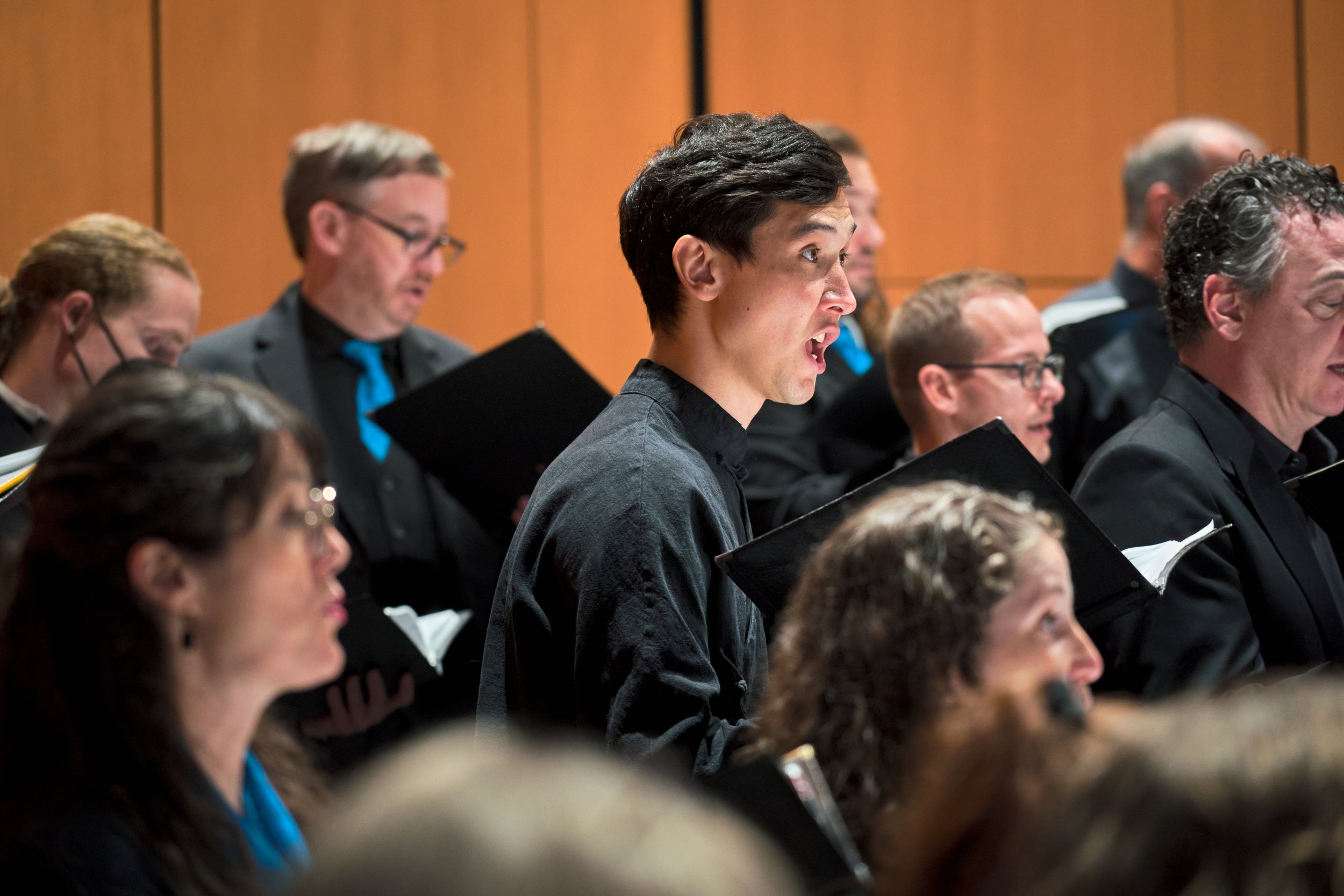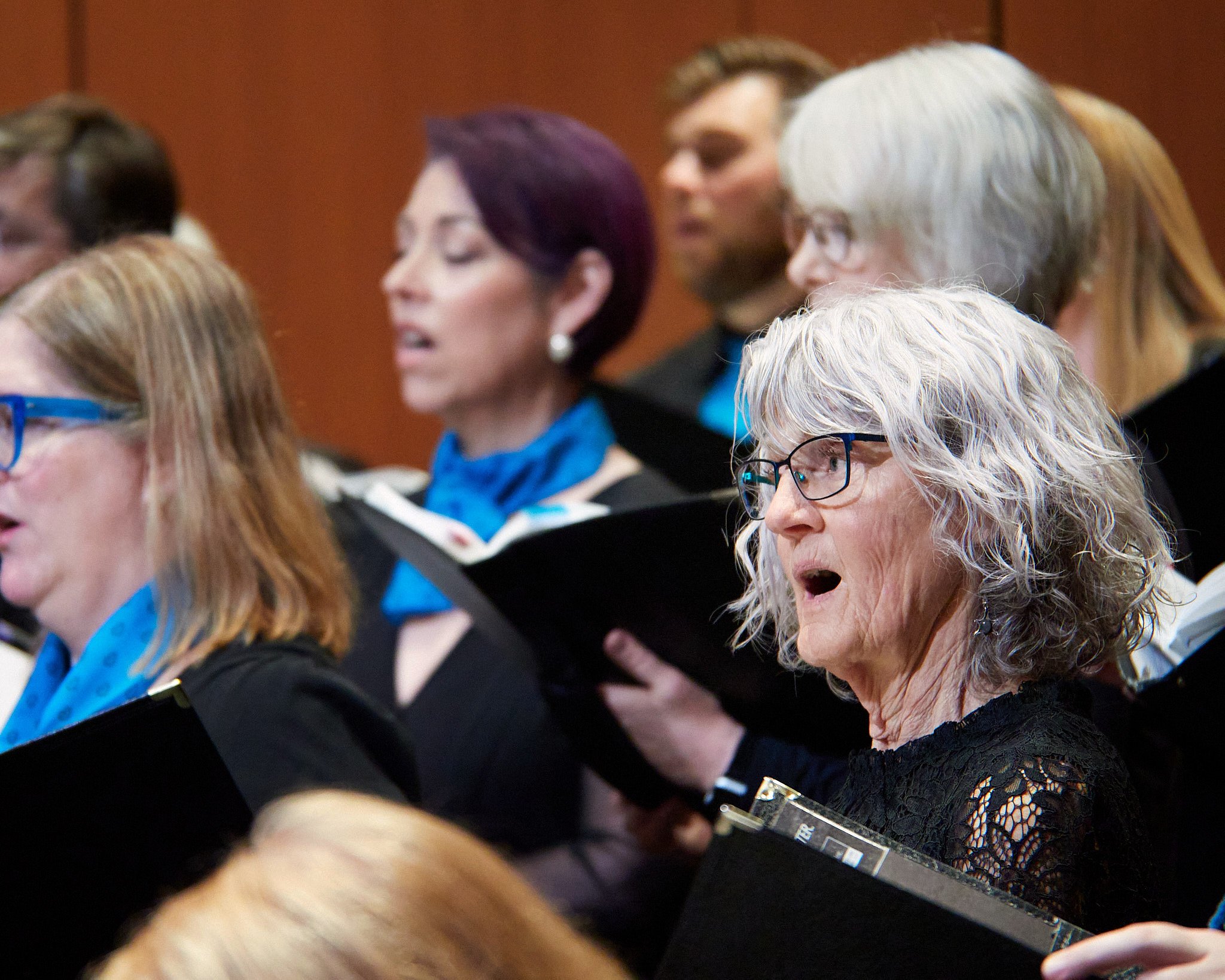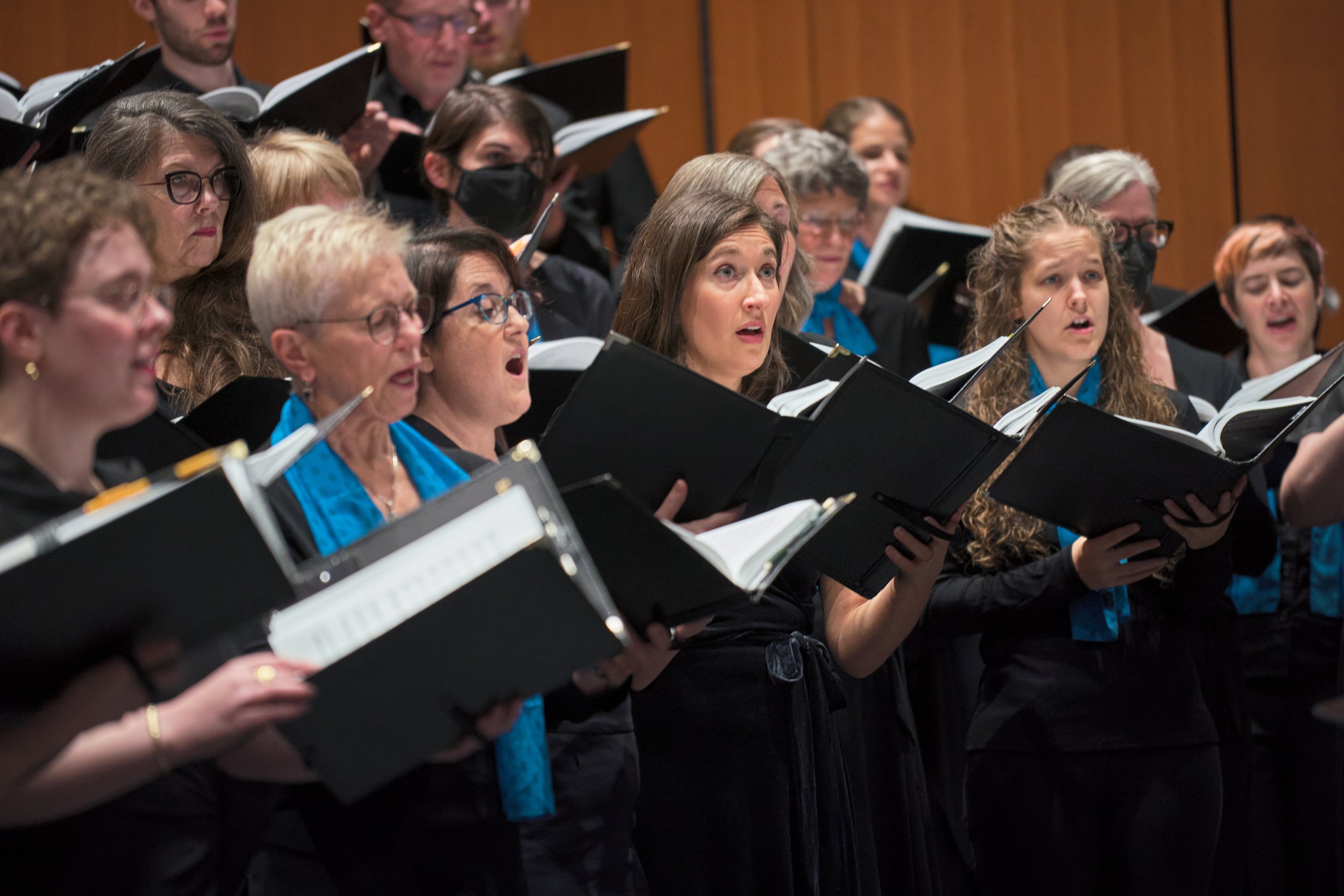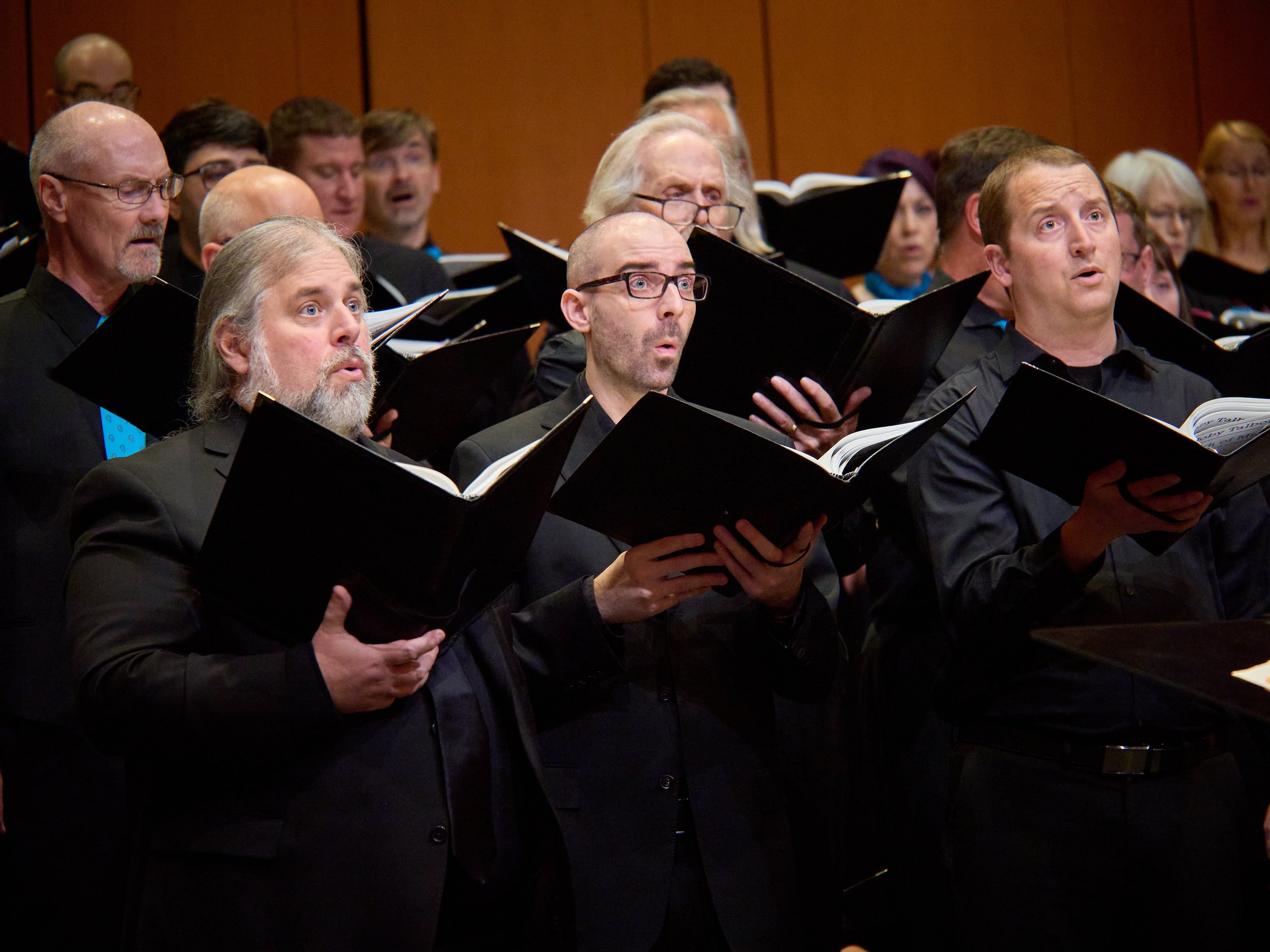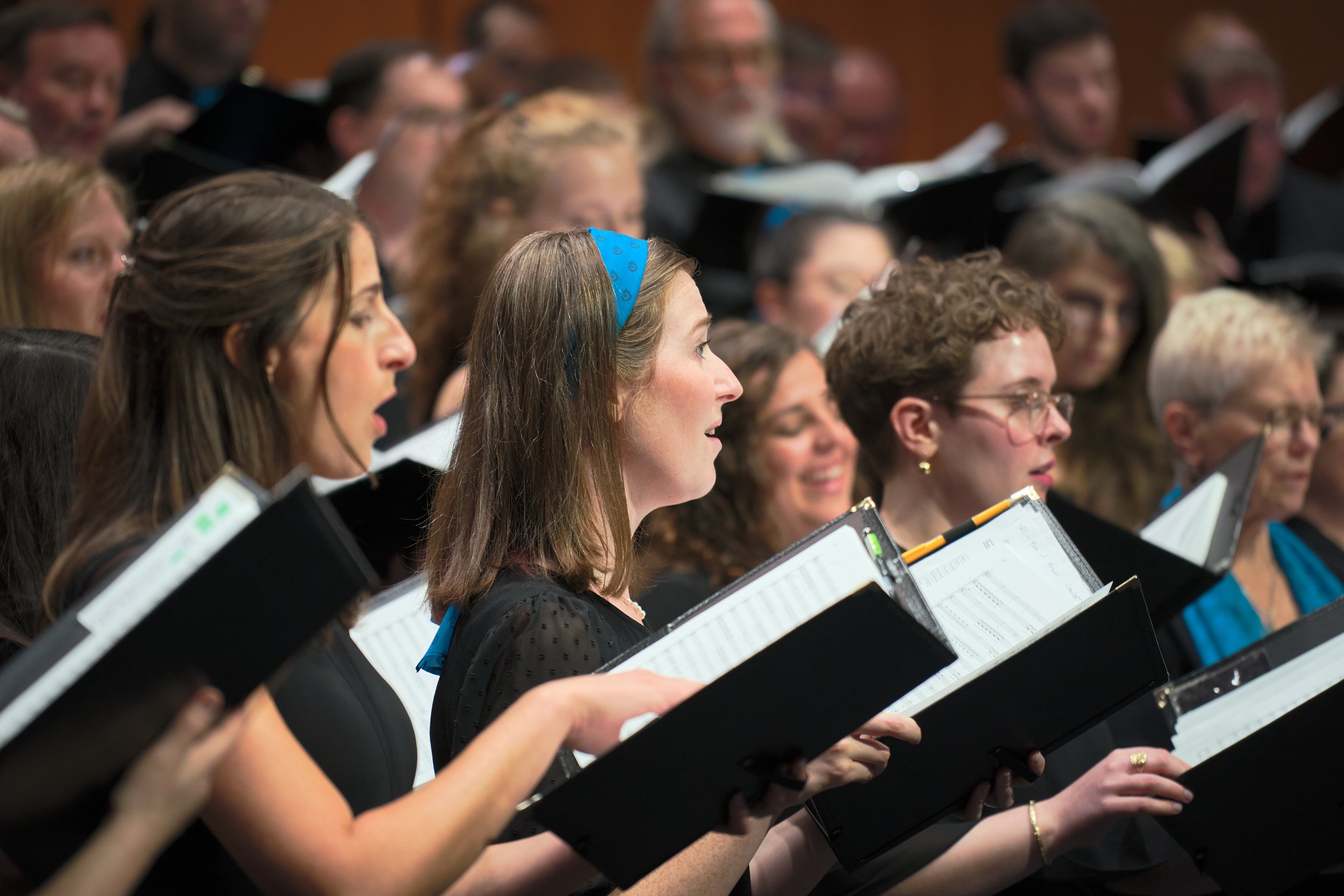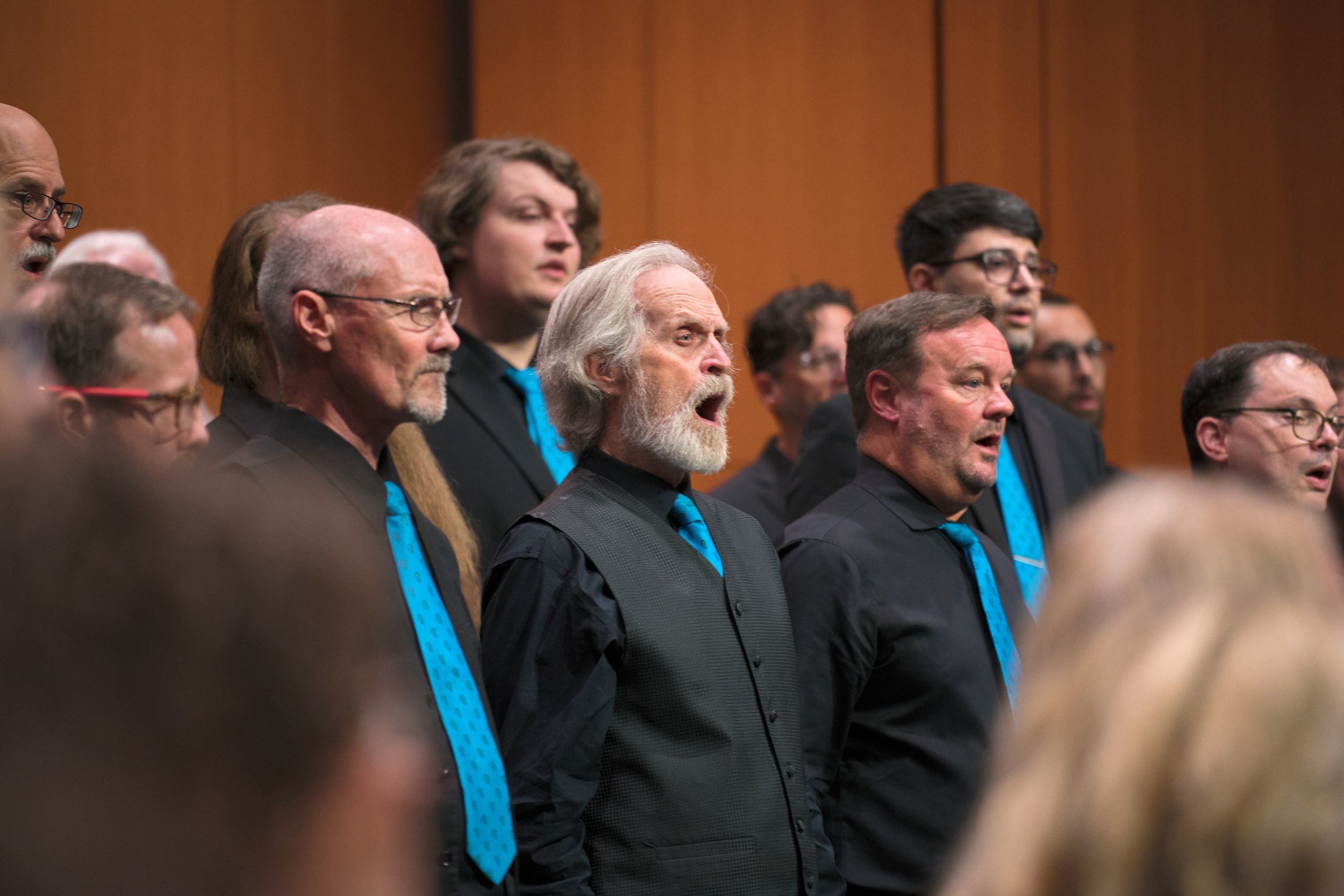
An all-embracing celebration… ORS is a superb chorus, one that sings with an arresting tonal richness, beauty, and transparency.
– Ken Meltzer

Review by Ken Meltzer
50 celebrates the golden anniversary of the Oregon Repertory Singers (ORS), an ensemble that began in 1974 as the Portland Chamber Singers. The repertoire on 50 comprises works by contemporary composers (excepting Franz Biebl’s Ave Maria), all of whom have collaborated with ORS. In fact, two of the composers are members of the chorus. Stacey Philipps, an ORS alto, contributes Close Distancing, a reflection on human interaction during and after the COVID pandemic. ORS accompanist Naomi LaViolette provides an arrangement of the medieval carol Let All Mortal Flesh Keep Silence, as well as her own original compositions Winter Solstice and Night of Silence. LaViolette is the pianist in several works on 50, including her beautiful improvisations for Ola Gjeilo’s Sunrise Mass. The four Philipps and LaViolette compositions and arrangements here receive world premiere recordings. Ethan Sperry, artistic director and conductor of ORS since 2011, leads most of the works on this recording. But Lisa Riffel, ORS assistant conductor, is featured on Morton Lauridsen’s Dirait-On and LaViolette’s Night of Silence. And the Union High School Chamber Orchestra from Vancouver, WA, a regular participant in the ORS “Glory of Christmas” concerts, may be heard in the Gjeilo work. 50 is truly an all-embracing celebration of the many artists who contribute to the success of Oregon Repertory Singers.
ORS is a superb chorus, one that sings with an arresting tonal richness, beauty, and transparency. There is also a keen sense of energy and involvement in their singing. The repertoire—beautifully crafted, lyrical and accessible—showcases the strengths of this ensemble. The superb performances, taken both from studio and in-performance (with audience applause) recordings, are captured in gorgeous sound. The booklet includes full texts and translations, commentary by Ethan Sperry, and Jan Schaeffer’s history of the ORS. Recommended.
